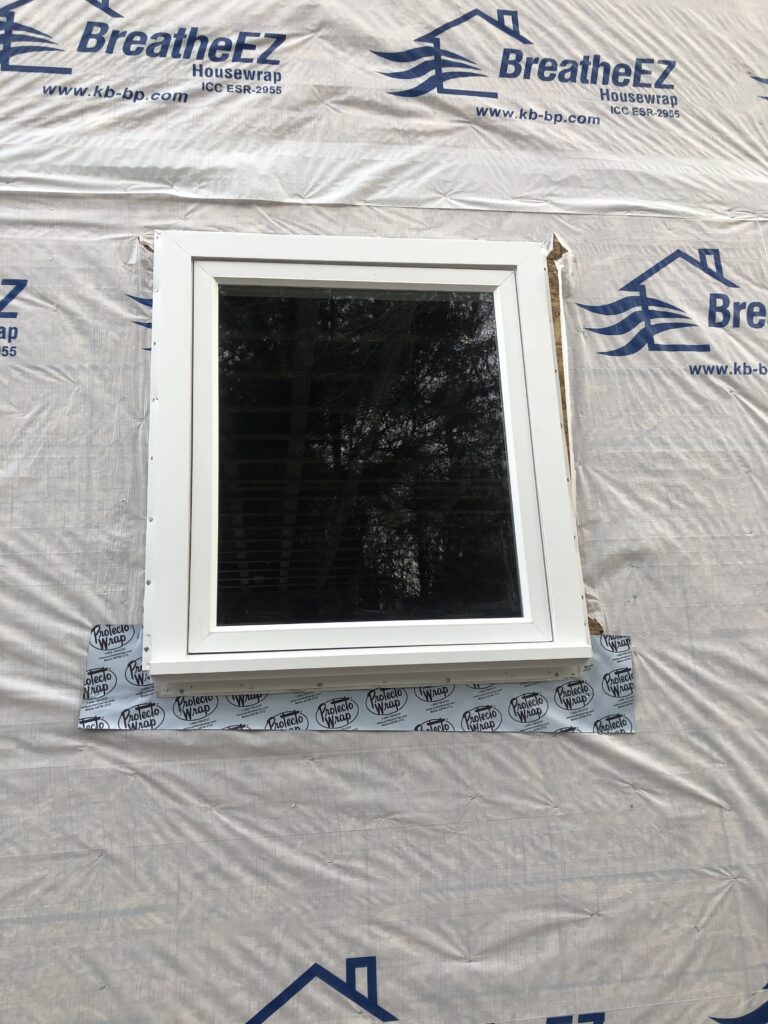Introduction
Window replacement warranty options are critical for ensuring peace of mind when investing in new windows for your home. These warranties protect you from unexpected costs and potential issues, ensuring that your new windows will not only perform well but also last for many years to come.
If you’re looking for a quick answer to understand your window replacement warranty options, here’s what you need to know:
- Lifetime Warranty: Covers the lifespan of your home, often including parts and labor.
- Limited Lifetime Warranty: Covers specific parts for a limited time (e.g., frames for 15 years, glass for 10 years).
- Transferability: Some warranties can be transferred to new homeowners, adding value to your property.
- Coverage Details: Typically includes frame, hardware, glass, and sometimes labor and installation.
Having a comprehensive understanding of these warranty options is crucial. A robust warranty offers you reassurance that any defects or installation issues will be addressed at no additional cost. This not only safeguards your investment but also enhances the long-term value and comfort of your home.
Investing time in understanding the different warranty options and their coverage can save you from financial surprises down the line. The right warranty transforms a good deal into a great one.

Types of Window Replacement Warranty Options:
When you’re investing in new windows, understanding the window replacement warranty options is crucial. A robust warranty offers you reassurance that any defects or installation issues will be addressed at no additional cost. This not only safeguards your investment but also enhances the long-term value and comfort of your home.
Lifetime Warranties
Lifetime warranties are the gold standard in window coverage. They generally promise to cover your windows for as long as you live in your home. However, dig into the fine print because “lifetime” can mean different things depending on the manufacturer. At Reliable, we define “lifetime” as the entire period your home is standing.
What’s typically covered?
– Normal wear and tear: Many lifetime warranties include coverage for the usual wear and tear that windows endure over time.
– Parts and labor: Some warranties cover both the parts of the window and the labor costs associated with repairs or replacements.
Limited Lifetime Warranties
Limited lifetime warranties are a step down from full lifetime warranties but still offer substantial coverage. These warranties often cover specific parts of the window or certain types of defects. For instance, they might cover manufacturing defects but exclude issues arising from installation errors.
What’s typically covered?
– Specific components: Parts like balances, clips, and locks may have coverage for different durations (e.g., 1 year for parts, 3 years for screens).
– Manufacturing defects: These warranties usually cover problems that result from defects in the manufacturing process.
Timeframe Warranties
Timeframe warranties offer coverage for a set number of years. These warranties can vary widely, from a single year to 10 years or more. They are generally less comprehensive than lifetime or limited lifetime warranties, but they can still provide valuable protection.
What’s typically covered?
– Short-term protection: These warranties often cover issues like glass breakage or hardware malfunctions for a specific period.
– Labor costs: Some timeframe warranties include labor costs, but this is less common and should be verified with the installer.
Comparing the Options
To make an informed decision, consider the following:
- Coverage specifics: Understand what each warranty covers and excludes.
- Transferability: Check if the warranty can be transferred to a new homeowner, which can add value if you sell your home.
- Company reputation: Trustworthy companies will clearly explain their warranty terms and conditions.
By understanding these window replacement warranty options, you can choose the one that best fits your needs and provides the most peace of mind. This ensures that your investment is protected for the long haul, giving you confidence in your home’s new windows.
Key Components Covered Under Warranty
When you’re looking at window replacement warranty options, it’s crucial to know what components are covered. Here’s a breakdown of the key areas you should expect in a good warranty:
 Frame Coverage
Frame Coverage
The window frame is the backbone of your window. If anything breaks or goes wrong with the frame, it should be covered by the warranty. High-quality frames often come with long-term warranties, sometimes up to 20 years or more. This ensures that if the frame warps, cracks, or fails in any way, you’re protected.
Glass Coverage
Glass is another vital component. A good warranty should cover issues like fogging, condensation between panes, or other malfunctions. For instance, if your window glass becomes perpetually foggy despite cleaning, the warranty should cover the replacement. Some warranties even include coverage for energy-efficient coatings or films on the glass.
Hardware Coverage
All the moving parts of a window, such as locks, balances, and clips, should be included in the warranty. If your double-hung window won’t tilt in or out as it should, the warranty should cover the repair or replacement. This ensures that the functionality of your windows remains intact.
Labor and Installation
Perhaps one of the most critical aspects of a window warranty is the coverage for labor and installation. If this isn’t included, you might end up paying extra to fix any installation issues. A comprehensive warranty ensures that the company stands behind their workmanship. This means if something goes wrong due to improper installation, you’re not left footing the bill.
Understanding these key components ensures that your investment is well-protected. Next, let’s delve into what “lifetime” really means in the context of window warranties.
Understanding the “Lifetime” in Lifetime Warranties
When you hear “lifetime warranty,” you might think it means the window will be covered for your entire life. But, the reality isn’t always that simple. Here’s what you need to know:
Definition Variations
Lifetime warranties can mean different things depending on the manufacturer. For some, “lifetime” might mean 5 to 20 years. Others, like Improveit, define it as coverage for as long as your home is standing.
Always ask the company to clarify their definition of “lifetime.” This ensures you know exactly how long your windows are covered.
Company Longevity
A lifetime warranty is only as good as the company backing it. If a company is new or doesn’t have a solid track record, their “lifetime” promise might not hold up if they go out of business.
Consider the company’s history and reputation. A company with a long, stable history is more likely to honor their warranty in the long run.
Transferability
If you plan on selling your home, a transferable warranty can add value. Not all warranties are transferable, but those that are can make your home more attractive to buyers.
Check the transfer process. It often involves notifying the manufacturer and possibly paying a small fee. For example, ProVia requires a Warranty Transfer Certificate and a fee within 30 days of the home purchase.
Understanding these aspects of a lifetime warranty helps you make an informed decision and ensures your investment is protected for as long as possible. Next, let’s talk about some red flags to watch out for when choosing a window replacement company.
Red Flags to Watch Out For
When you’re considering window replacement warranty options, it’s important to stay vigilant for red flags. Here are some key warning signs:
Unprepared Responses
If a company can’t answer basic questions about their warranty, that’s a big red flag. You should be able to ask about frame coverage, glass coverage, and hardware coverage and get clear, detailed answers. For instance, if you ask about labor and installation coverage and they stumble or give vague answers, be cautious.
A reliable company should be transparent and knowledgeable about their warranties. If not, it might mean they don’t stand behind their products and services.
Dodging Questions
Watch out for companies that dodge your questions. If you ask, “Does the warranty cover installation errors?” and they change the subject or give an evasive answer, that’s a bad sign.
Honest companies will address your concerns directly. They won’t try to confuse you with jargon or avoid the topic. If you feel like you’re not getting straight answers, trust your instincts and consider looking elsewhere.
Pressure to Sign
Never feel rushed into signing a contract. High-pressure sales tactics are a major red flag. If a company insists you sign “today only” to get a special deal, be wary. Good companies understand that you need time to make an informed decision.
A warranty is a long-term commitment. Take your time to read the fine print. Ask questions and get clarifications. A reputable company will respect your need to make a careful decision.
Next, let’s explore how to make the most of your window replacement warranty and ensure you’re getting the best value for your investment.
Making the Most of Your Warranty
Transferable Warranties
A transferable warranty can add significant value to your home. If you sell your house, the new owner gets the same protection. This can be a big selling point. Not all warranties are transferable, so ask your window installer about this.
For example, a homeowner named Jane sold her house with a transferable warranty. The buyer was impressed and chose her home over another. The warranty made the difference.
Coverage Specifics
Understand exactly what your warranty covers. Here are the main components you should look for:
- Frames and Sashes: These are the main parts of the window structure.
- Glass: Coverage for broken glass or seal failure.
- Hardware: Includes locks, balances, and clips.
- Labor and Installation: This is crucial. If something goes wrong with the installation, you want it covered.
Tip: Always ask for a detailed list of what’s included in your warranty.
Claim Process
Knowing how to make a claim can save you time and frustration. Here’s a simple process to follow:
- Get Your Warranty Document: If you didn’t receive a hardcopy, request one.
- Register Your Warranty: Some companies require you to register your warranty. Do this right away.
- Contact the Service Department: Use the contact info in your warranty document.
- Describe the Issue: Be clear about what’s wrong. The service team will guide you from there.
Pro Tip: Keep a copy of all your communications. This can help if there are any disputes.
Value of Lifetime Coverage
A lifetime warranty can offer peace of mind. It means your windows are covered for as long as you own your home.
Benefits:
– No Out-of-Pocket Costs: Repairs and replacements are covered.
– Long-Term Protection: You’re protected from rising repair costs.
– Ease of Mind: No need to worry about finding a repair company.
For instance, a homeowner named Mark had a window break during a storm. Because he had a lifetime warranty, the repair was free, saving him hundreds of dollars.
Next, let’s dive into frequently asked questions about window replacement warranties to clear up any remaining doubts.
Frequently Asked Questions about Window Replacement Warranties
What does a window replacement warranty typically cover?
A window replacement warranty usually covers several key components:
- Frames: Might be covered for 20 years or more.
- Glass: Often covered for 10 years, sometimes less.
- Hardware: This includes balances, clips, and locks.
- Labor and Installation: Coverage for labor might be shorter, so clarify this with the installer.
Make sure to read the fine print. Some warranties also cover accidental glass breakage and seal failure that causes fogging or condensation between the glass panes.
How can I transfer my window warranty if I sell my home?
If your warranty is transferable, it adds value to your home when you sell it. Here’s how you can transfer it:
- Check the Warranty Terms: Not all warranties are transferable. If they are, there will be specific steps to follow.
- Notify the Manufacturer: You’ll likely need to inform the manufacturer about the transfer.
- Inspection: Some companies require an inspection before the transfer.
- Transfer Fee: There might be a small fee involved.
For example, ProVia windows offer a transferable warranty that requires a Warranty Transfer Certificate and a fee within 30 days of the home purchase.
What actions or circumstances can void my window warranty?
Certain actions or events can void your window warranty:
- House Settling: Structural changes can affect your windows.
- Natural Disasters: Events like fire, flooding, or severe weather.
- Neglect or Vandalism: Damage from neglect or vandalism.
- Unauthorized Repairs: Attempting repairs yourself or using unapproved third parties.
- Tampering: Painting windows or adding unapproved aftermarket features.
Always follow the manufacturer’s guidelines to keep your warranty valid.
Next, let’s explore how to choose the best window replacement warranty for your needs.
Conclusion
Choosing the Right Warranty
When it comes to window replacement, choosing the right warranty is crucial. A well-chosen warranty protects your investment and provides peace of mind. Look for warranties that cover frame, glass, hardware, and installation and labor. These components are vital to ensure your windows function well and last long.
Lifetime warranties offer extensive coverage, but understand what “lifetime” means according to the manufacturer. Some define it as 5 to 20 years, while others, like us at Reliable, offer coverage for as long as your home stands. Always read the fine print and ask questions to clarify any uncertainties.
Importance of Detailed Understanding
A detailed understanding of your warranty can save you from unexpected costs and frustrations. Know what is covered and what actions can void your warranty. For instance, natural disasters, house settling, and unauthorized repairs are common exclusions.
Understanding these details helps you maintain your warranty’s validity and ensures you get the most out of it. When in doubt, consult with your contractor to get a clear picture of your warranty terms.
Peace of Mind in Window Replacement
Investing in windows with a solid warranty offers peace of mind. You won’t have to worry about unexpected repair costs if something goes wrong. A reliable warranty signifies that the manufacturer and installer stand behind their products and workmanship. This assurance is invaluable, especially when making a significant investment in your home.
At Reliable, we prioritize your peace of mind. Our warranties are designed to offer comprehensive coverage, ensuring your windows remain in excellent condition for years to come. For more information on our services and warranties, visit our services page.
Choosing the right window replacement warranty is not just about coverage; it’s about ensuring long-term satisfaction and security for your home. Take the time to understand your options, ask detailed questions, and trust your instincts. With the right warranty, you can enjoy your new windows worry-free.



